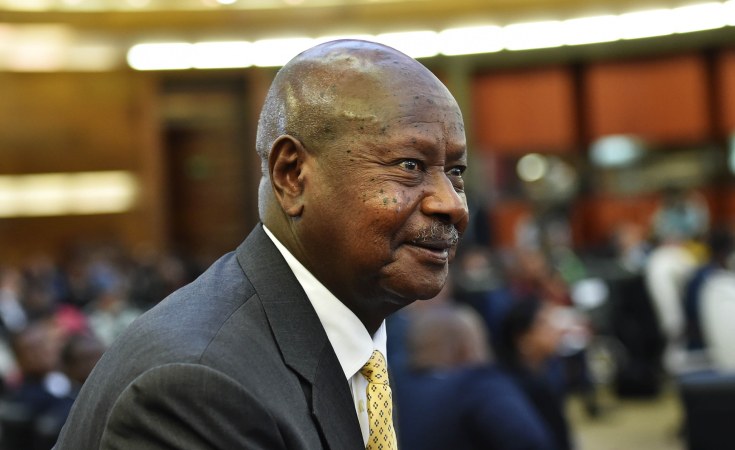Kampala — Ugandan President Yoweri Museveni on Wednesday accused the World Bank of using money to try to "coerce" the government over its controversial anti-gay legislation.
His comments followed an announcement by the US-based global lender on Tuesday that it was suspending new loans to the East African country over what are considered among the world's harshest laws targeting LGBTQ communities.
The World Bank said that Uganda's Anti-Homosexuality Act "fundamentally contradicts" the institution's values and that no new public financing would be presented to its board of directors for approval for the time being.
But Museveni, who signed the measures into law in May, posted on X, the former Twitter, that "Ugandans will develop with or without loans".
"It is therefore unfortunate that the World Bank and other actors dare to want to coerce us into abandoning our faith, culture, principles and sovereignty, using money," the veteran leader said.
"We do not need pressure from anybody to know how to solve problems in our society."
Museveni nevertheless said Uganda was continuing discussions with the World Bank "so that they and we avoid this diversion if possible".
The United Nations, foreign governments including the United States, and global rights groups have condemned the new law, which contains provisions making "aggravated homosexuality" a capital offence and imposes penalties for consensual same-sex relations of up to life in prison.
In May, US President Joe Biden called for the immediate repeal of the measures he branded "a tragic violation of universal human rights" and threatened to cut aid and investment in Uganda.
But the government has remained defiant and the legislation has broad support in the conservative majority Christian country, where lawmakers have defended the measures as a necessary bulwark against alleged Western immorality.
Uganda's Information Minister Chris Baryomunsi also confirmed to AFP earlier Wednesday that consultations were ongoing with the World Bank.
"However, the World Bank and others should be reminded that Uganda is a sovereign country, which takes decisions in the interests of her people, and this is the spirit of the Anti-Homosexuality Act."
In the wake of Tuesday's announcement, Uganda's health ministry, which is among recipients of the World Bank funds, issued a circular reiterating that no one should be denied medical services.
The statement said that healthcare providers and workers were "not to discriminate, stigmatise any individual who seeks health care for any reason, gender, religion, tribe, economic or social status or sexual orientation".
Rights campaigners had voiced concerns that following the new law, healthcare providers could report to the police members of the LGBTQ community seeking medical care, or that people would be wary of going to hospital for fear of being stigmatised.


